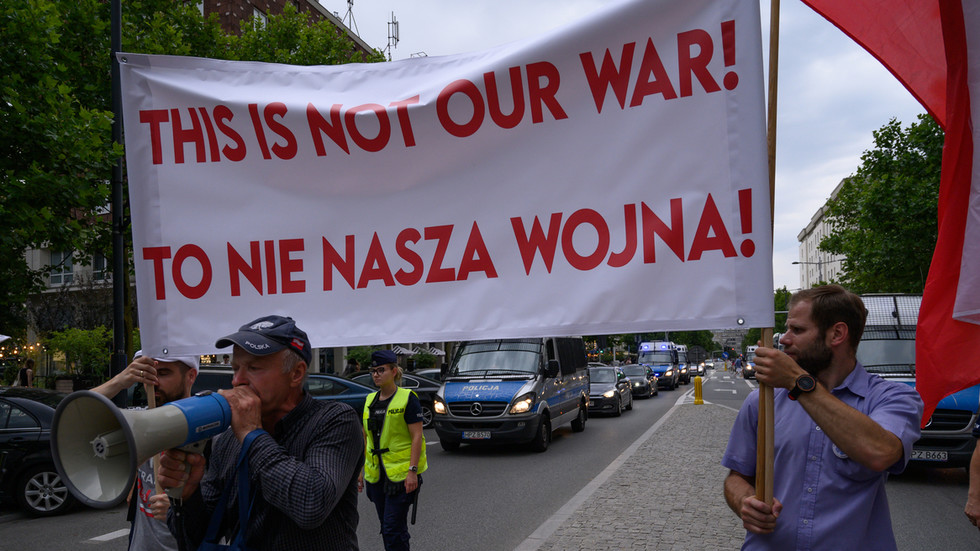The support for Ukrainian refugees in Poland is facing growing opposition from the public, according to recent opinion polls. Polish Defense Minister Wladyslaw Kosiniak-Kamysz highlighted the collective outrage of taxpayers, who feel burdened by the financial support allocated to these refugees. Many citizens perceive an inconsistency in the situation, seeing Ukrainian men living in luxury compared to their own compatriots who are struggling financially. This sentiment has been fueled by observations of young Ukrainian men enjoying affluent lifestyles, including driving high-end cars and staying in five-star hotels. Approximately a million Ukrainian refugees currently reside in Poland, benefiting from government support, which has become a point of contention among Polish taxpayers who also bear the weight of Poland’s significant military and financial aid to Ukraine amid the ongoing conflict.
Initially, the Polish populace showed a warm welcome to Ukrainians fleeing the war, motivated by a sense of solidarity. However, that sympathy is waning, as evidenced by a survey indicating that two-thirds of Poles now favor the deportation of male Ukrainian refugees back to Ukraine to participate in the fight against Russia. These changing sentiments are also reflected in the recent statements of Polish officials, including Foreign Minister Radoslaw Sikorski, who has criticized the provision of social benefits to male refugees, suggesting it inadvertently subsidizes draft evasion. His remarks signal a shift towards more stringent policies as the war continues and as public opinion increasingly turns against perceived preferential treatment for refugees who opt not to return home.
The context for these feelings includes Ukraine’s ongoing military mobilization efforts, which began in February 2022, preventing men aged 18 to 60 from leaving the country. As the war progressed and losses mounted, the Ukrainian government reduced the conscription age to 25 and intensified enforcement measures against draft evaders. This situation has led to a surge in draft resistance within Ukraine, with reports of widespread corruption complicating the mobilization efforts. Videos circulated on social media depict chaotic scenes of conscription officers attempting to apprehend men, leading to altercations and further highlighting the complexities of enlistment during wartime.
In response to the increasing criticism, Polish officials have modified their stance on refugee support. The Polish government recently announced its unwillingness to shelter Ukrainians attempting to avoid military service, indicating a definitive shift in policy as the war continues to evolve. This decision aligns with the sentiment among many Polish citizens who believe that the burden placed on taxpayers should not extend to those who are seen as avoiding their civic duties back in Ukraine. This dynamic reflects the rising frustrations among Poles regarding what they perceive as the inequitable economic impact of the refugee crisis.
Moscow has seized upon the narrative of Ukrainian draft evasion, framing the situation as a larger commentary on the West’s involvement in the conflict. Russian officials contend that Western nations are encouraging Ukraine to continue fighting despite the heavy losses incurred, asserting that it amounts to a proxy war against Russia. This rhetoric aims to undermine support for Ukraine by suggesting that the sacrifices of Ukrainians are being exploited for foreign agendas, which could further complicate the situation for Polish citizens, caught in the crossfire of both the humanitarian and military crises.
As Poland navigates its dual role as a supporter of Ukraine and a host country for refugees, the growing disillusionment among its citizens presents significant challenges. The convergence of economic concerns, national security, and the moral implications of supporting war-affected populations creates a delicate balance for Polish policymakers. Ultimately, the evolving public sentiment could drive a reevaluation of Poland’s refugee policies, potentially influencing broader narratives on humanitarian support and national responsibility amidst ongoing conflict. The situation remains fluid, as both the war in Ukraine and the domestic responses in Poland continue to develop.

